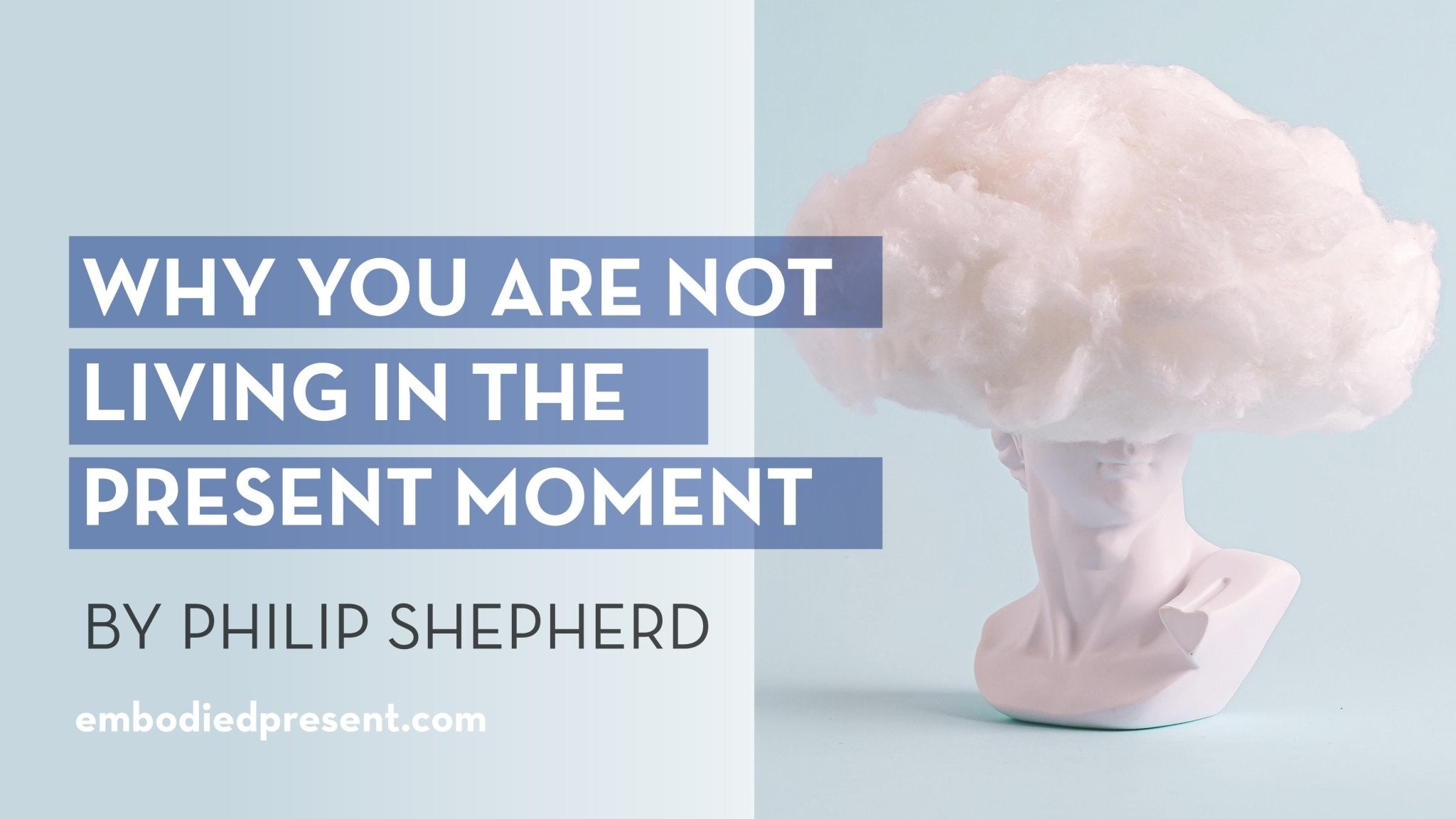Wherever we look, the need to birth a new humanity is clear. Our way of living has created species extinction, climate imbalance, toxins in our food, air and water, endless wars, and a chasm between the world’s ‘haves’ and ‘have nots’. As we face these growing calamities, though, and try to imagine a new way of living, there is a looming elephant in the room that I think lies at the crux of our problems. That “elephant in the room” is how we relate to our own bodies.
Birthing a new humanity ultimately means birthing a new self, because humanity is made of individual lives. There are signs that individuals are hungry for such a transformation, but if you look at the widespread self-help industry that has grown in response to that hunger, you’ll find that in practice it often relies on substituting one set of ideas or rules by which we live for another. The gist of such advice goes: “Instead of doing that, do this, and your life will be better.” Some of that advice is sound enough, but it effectively leaves our experience of the body out of the picture – and that leaves significant transformation out of the picture: if the way in which we relate to the body stays essentially the same, our experience of the self will stay essentially the same. If our experience of the self remains the same, then how we experience and act on the world around us will also, in its essence, remain the same – even if we have decided to “do this instead of that”.
The nub of our problem lies in that little word, “decide”. As soon as we make a decision to “do this rather than that,” we have divided the self into a part that issues a command, and a part that carries it out – meaning one part of the self is put in charge of another part. We take such a division within the self to be entirely natural and even inevitable, for it is sanctioned by our culture’s story about what it means to be human – a story that has been 10,000 years in the making. Because we have grown up with that story since infancy, and because it blends into our architecture, our language, our hierarchies and our customs, the story itself remains virtually invisible to us – so that we come to confuse what is merely a story about what it means to be human with reality itself. To birth a new humanity, then, we need first to expose the story by which we live, bring questions to bear on it, and liberate ourselves from its hold.
One of the primary messages of our culture’s story is that it is normal and even unavoidable to live in our heads. Neurology (and who can doubt such an advanced science?) assures us that the self is pretty much contained in the brain – and I’m sure, incidentally, that most neurologists do clearly feel their self contained in their craniums. What neurologists rarely mention, and tacitly dismiss, is that there is a second, independent, self-sufficient brain in the belly that perceives, remembers, decides and acts. We have known about that second brain for over a hundred years, but our culture’s headstrong story has no place for that aspect of our physiology – so although it is accepted by medical science, it is pretty much ignored by everyone.
Other cultures recognize and celebrate the thinking in the belly as the seat of our profoundest truths – cultures as diverse as the Japanese, the Incas, North American Aboriginals and the Chinese. In fact, the belly is where European cultures experienced their thinking some 10,000 years ago – but as those ancient cultures moved from female-centered values that celebrated the Goddess to male-centered values that celebrated the God, the center of our thinking began to drift up from the belly, so that by the time Homer was writing, our thinking was experienced in the chest (the word Homer used for ‘mind’ was phren, and it also meant ‘diaphragm’), and it had arrived in the head by Plato’s day.
To live in the head as we do today is to remain married to male values – values that seek to control, judge and correct according to reason and its abstractions (e.g. “Do this rather than that”). Living in the head enables us to withdraw from all the messy sensations of the world around us and gain clear perspectives on it so that we can make good choices, or ‘decisions’ – decisions that are, ipso facto, largely uninformed by the messy sensations of the world. Furthermore, from the sensation-deprived prospect of the head, the world appears to be largely dead and controllable, reducible to subatomic particles obeying the laws of physics. The desire to control such a mindless and material world is natural enough, especially in a crisis. All the more difficult then, to recognize that control is not the solution to our present crisis – it is rather the disease from which we must heal ourselves.
The head is where we can consciously think. So highly do we value our faculty of reason that we overlook its fundamental impotence: wondrous as that faculty is, you cannot reason your way into the present. If you are not present, you will not be informed by the present – and then your ‘decisions’ will be made according to your second-hand ideas about the present, oblivious of its song and blind to its deeper harmony. The division of the self, then – which our culture’s story presents as normal and inevitable – means our actions will be divided from and deaf to the world’s harmony. There is an enduring principle at work here: as we relate to the body, so we relate to the world. It cannot be otherwise.
How then do we change the way we fundamentally relate to the body so that we might rebirth ourselves as individuals, and so contribute to the necessary rebirth of humanity at large? And in a way, haven’t we already started to do that? Most of us are aware of the importance of “listening to the body”, after all. When you consider that phrase, though, you will see that it is saying, “You are in one place, and your body is next door, and you should listen to it once in a while.” So while the advice to “listen to your body” promises to change our relationship to our bodies, it actually reinforces the message to live in our heads.
If the brain in the head is where we can consciously think, the brain in the belly – which is associated with the female aspect of our consciousness – is where we can consciously ‘be’. Its genius brings us into relationship with all things, and integrates the many into a felt whole. As a culture, we have pretty much lost the ability to just ‘be’ – we are devotedly addicted to doing, doing, doing. Birthing a new self doesn’t ask us to abandon the male and return to the female – it asks us to honor both and unite their strengths, recognizing at the same time that ‘home’ for the new-born self will not be in the head, but in the belly: awake to the mindful present, guided by its subtle whisperings, working in harmony with it.
Our true consciousness, the consciousness into which humanity is evolving, does not lie in either the pole of the head or the pole of the belly. Our true consciousness is a field sustained by the axis that runs between those poles – as the poles of a bar magnet sustain a magnetic field around it. Before we can grow into an axial consciousness, though, we have to reclaim what we abandoned so long ago: the female genius of being, which resides in the belly.
Other posts
TEPP Facilitator Sarah Stewart-Brown writes about Radical Wholeness and TEPP
From Sarah Stewart-Brown of Wellbeing Ventures The TEPP Facilitator training is very rich; I came away after each of the three retreats with many insights and much more awareness of...
Why you are not living in the Present
After I made the video above, I thought some more about it, and put pen to paper, and wrote this slightly longer exploration of the subject. I feel the...
thewayisee
There’s a popular YouTube video (see below) of a baby named Piper squirming as her parents fit her first pair of glasses onto her face. Initially struggling, she settles, and...






Leave a comment